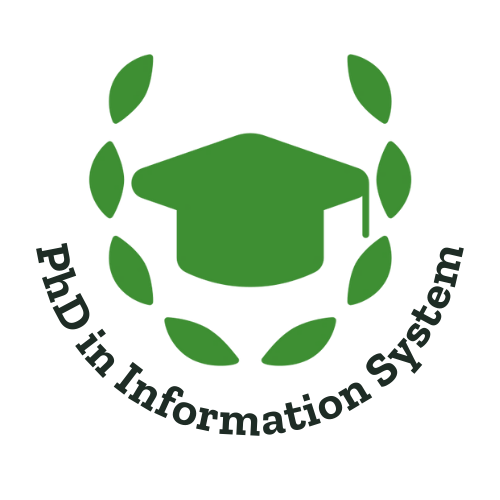

Is it possible to earn a PhD while working? The brutal truth
Working alongside your PhD seems like an attractive proposal until you look at all of the different commitments you need to make to actually get a PhD and submit your dissertation. Working part-time may help PhD students financially but it often comes at an academic cost.
It is possible to earn a PhD while working. However, it requires strict time management and can be very complicated. You have to balance any other significant commitments inside and outside of your PhD.
A PhD is typically the equivalent time commitment as a full-time job. The majority of the PhD students I know work at least 40 hours a week. So, trying to get a PhD while working is very time intensive – 80-hour + weeks.
Some students drop down to a part-time PhD in order to balance all of the particular commitments of a PhD program and working hours.
Whether or not you are a part-time PhD student or you are studying your PhD full-time, here are all of the aspects you should consider if you are considering working alongside your PhD research. This is what you need to know if you are considering getting your doctorate while working.
Can you work during a PhD?
Some institutions full-out ban their PhD students from working full-time alongside a full-time research commitment. They want to make sure that you’re working 100% on your PhD because balancing work isn’t easy.
Although it may not be banned in some institutions it is generally expected that students focus on their research and coursework full-time during a PhD and are therefore not typically able to hold down a full-time job.
Some programs may allow for part-time work, but it is generally not recommended as it can interfere with academic progress.
Additionally, many PhD programs offer funding in the form of stipends or fellowships which can help support students financially during their studies.
There are a few things to consider if you are thinking of working during your PhD.
The first is whether or not you will have enough time to dedicate to both your work and your studies. You don’t want your work to suffer because you are spending too much time on your PhD, or vice versa.
Another thing to consider is how working will affect your funding.
If you are receiving PhD funding or a scholarship from an external source, they may have stipulations on whether or not you can work while receiving their funding. Be sure to check with them before taking on any paid work.
Lastly, you will want to make sure that the work you are doing is related to your field of study. Working in a related field can help you with your research by giving you real-world experience that you can apply to your studies.
Even though some institutions allow you to work, should you?
Should you work during your PhD?
Some students feel that they need to work in order to support themselves during their PhD, while others feel that they can focus solely on their studies.
There are pros and cons to both approaches.
Working during your PhD can help you to cover your living expenses and may even allow you to save some money. However, it can also be a distraction from your studies and may make it more difficult to find time to do research.
I know that I wouldn’t be able to balance the pressures of a full-time job with my PhD studies and, therefore, decided to not have any jobs during my first year – this included jobs inside the University such as demonstrating in undergraduate laboratories.
Therefore, it is possible to do a PhD whilst working full-time but you really have to consider the impact of the extra pressures and commitments
. It is much easier to work alongside your PhD if you have a strong research-based masters degree and your job outside of your degree is flexible enough to allow you to attend different academic commitments such as attending seminars, meeting with advisers, and travelling to conferences.
Ultimately, the decision of whether or not to work during your PhD is up to you.
Consider your financial situation and how working would impact your studies before making a decision.
It can be difficult to juggle work and study commitments, and you may find yourself feeling overwhelmed and stressed. You may also have less time to socialize and enjoy your student life.
So, it’s important to think carefully about whether working during your PhD is right for you.
What type of work can you do during a PhD? Part time or Full time?
During your PhD there are a number of different options that you could consider if you want to (and you are allowed to) get a job.
I do not recommend working full-time alongside your PhD but, there are some options for part-time work to earn a little bit of money alongside your studies.
Full time work
My recommendation is that you do not try to fit a PhD alongside full-time work. Trying to work full time is asking for trouble.
There will be so many more pressures on you that it will not be a very enjoyable experience.
A PhD requires you to be creative.
Creativity comes from having enough mental space to allow your mind to connect new and interesting ideas together. If you are busy with work you will not have the mental capacity to be able to do this effectively.
Therefore, I recommend that you consider at least dropping down to part-time work if you are insistent on pursuing a PhD alongside employment.
I have seen PhD students complete a PhD part-time supported and partly funded by their current place of employment.
Part time work
If you want to know more about the best PhD student part-time jobs check out my full guide – click here for the full article.

There are a variety of part-time jobs that can easily supplement your income during a PhD.
The best PhD student part-time jobs will have flexible hours, provide you with a reasonable hourly rate, and not distract you from your primary goal of completing your PhD.
I have highlighted in my YouTube video, below, all of the different side hustles that PhD students can try if they need to earn a little bit more money.
The common part-time jobs for PhD students include:
- Hospitality
- Customer service
- University-based jobs – such as tutoring, marking exams, student services and working in laboratories
- Online jobs such as user testing, notetaker, and translating.
- Freelancing. Selling a skill that you have two people on services such as Upwork .
Why Should You Worry About Working During Your PhD
There are a number of reasons why you should worry about working during your PhD.
The most important is balancing workload, the fact that you were extending your time in academia by a significant amount, the increased risk of burnout, and ensuring you have enough resources to keep you going for multiple years.
A PhD is just like a full time job.
Therefore, getting a PhD while working full-time will be incredibly difficult. Both commitments will require at least 40 hours per week each.
Nonetheless, if you are able to have full flexibility on your work schedule and you are capable of distance learning for some part of your PhD it may be much more possible.
Many PhD students struggle with just the commitments of earning a doctorate. Consider working alongside your PhD very carefully.
Time it takes
A PhD will typically take between three and seven years. During this time it is extremely stressful and you need to make sure you’re capable of researching at your best for the entire time.
I have always said that a PhD is a marathon and not a sprint. Adding extra years to your PhD if you need to can be worth it. However, you must consider the amount of time it will take you to get your PhD and the potential return on that investment.
Unless you have a particular career secured or in mind for after your PhD the extra years it takes to complete a doctoral degree part-time are generally not worth it.
Burnout is a real consequence of doing a PhD.
By working alongside your PhD you’ll increase your chances of burnout significantly. This is true even if you like to study.
If you are prone to feelings of being overwhelmed I would stay away from earning a PhD whilst working full or part-time.
Slowly introduce part-time work if you need to once you have settled into the general routine of your PhD.
Tips for Earning Your PhD While Working
Here are a few general tips that may help you if you find yourself having to work alongside your PhD:

Talk to everyone involved
Everyone involved in this process needs to be on board. There will be times when you need to ask favours from your supervisor, colleagues, work supervisor or others.
Don’t be afraid to ask for help: Whether it’s from your supervisor, colleagues, or friends and family, don’t hesitate to ask for help when you need it.
This is not a sign of weakness, but simply a recognition that we all need assistance from time to time.
Stay Organized and on Track
Find a routine: Try establishing a set schedule for at least most days of the week and stick to it as much as possible. This will help you to stay focused and make the most of your limited time.
Get Involved in the Research Community
Remember to stay in touch with your research community.
Working part-time or full-time can mean that you miss out on the exciting recent advancements and collaboration with people in your field. Make an extra special effort to attend seminars, talks, and networking events to help progress your research and your academic career.
Don’t squirrel yourself away!
Work with your strengths
Know yourself: Be honest about how well you work under pressure and how much free time you realistically have.
If you know that you work better with a tight deadline, then try to structure your work schedule accordingly.
Personally, I need as much free mental space is possible to perform at my best. Just do what is best for you.
Wrapping up
This article has been through everything you need to consider if you are tempted by earning a PhD while working.
Your PhD programme may dictate whether it is possible to work alongside your PhD. Whether or not it is a good idea will be down to you and if you are able to balance an insane amount of commitments and work.
My general recommendation is that you should focus 100% on your PhD journey and although it is definitely possible you’re going to be at risk of burnout.
Combining part-time PhD’s, part-time jobs, and finding a flexible job that will help keep you focused on the primary goal of finishing your dissertation is the most sensible way of working alongside your PhD.

Dr Andrew Stapleton has a Masters and PhD in Chemistry from the UK and Australia. He has many years of research experience and has worked as a Postdoctoral Fellow and Associate at a number of Universities. Although having secured funding for his own research, he left academia to help others with his YouTube channel all about the inner workings of academia and how to make it work for you.
Thank you for visiting Academia Insider.
We are here to help you navigate Academia as painlessly as possible. We are supported by our readers and by visiting you are helping us earn a small amount through ads and affiliate revenue - Thank you!

2024 © Academia Insider

Community Blog
Keep up-to-date on postgraduate related issues with our quick reads written by students, postdocs, professors and industry leaders.
5 Things to Consider Before Doing a PhD While Working

- By Nicholas R.
- August 19, 2020

Those interested in getting a PhD but dreading the several years of no income or a stipend that doesn’t meet their needs may consider a part time or even a full time job. That way, they can gain experience in the field, save up a little money and have a non-academic route they could later make use of. After all, if you’ve already made it to the point where you’re eligible to study at PhD level, you’ve already proven that you have great time management skills and that you can dedicate yourself to your studies, right?…
It might sound like a workable plan to many, but getting a PhD while working might not be as easy as you may think. Take it from many PhD students and postgrads who warn that it a slippery slope from a part time PhD to no PhD at all.
If you decide to go down this route, keep the following considerations in mind to give you the best chance of succeeding.
1. Know Your Programme
Some part time PhD programmes, especially the ones offered by online universities and distance learning schools, are well suited for those who want to work and study at the same time. Some aren’t as rigorous or time-consuming as others, and in some fields, the experience of working in industry through your current career will be a great benefit. A part time PhD will also have a more manageable workload , and supervisors will usually be more experience in providing support to working students. But keep in mind that some PhD part time programmes will not be eligible for financial aid or funding , at which point part time study may no longer be personally worth it.
2. Know Your Job
If your work is related to your field of study and your employers understand and support the requirements of your PhD, you will have a much less stressful few years. Therefore, one of the first things you’ll want to do is to get your employer on your side.
You can go about this by sitting down with them and explaining what your research will be about, how it will benefit your professional development and how it will benefit them as a business. You will also want to reassure them that you’ll be able to remain committed to your job during your studies, as this is likely to be their biggest concern. Don’t just stop at their verbal support, ask your manager to sit down with you to discuss the possibility of funding support, study days and the assignment of a mentor if your workplace has a doctorate holder.
Finding a PhD has never been this easy – search for a PhD by keyword, location or academic area of interest.
3. Know Your Situation
If you have young children, a sick parent, or generally any commitments that require hours of your time, it’s probably best to stay a full time student. If your field requires many publications or relies heavily on being able to network and interact with other researchers, keep in mind that you probably won’t be able to live up to their expectations if you already have work commitments you need to keep up.
4. Know Your Supervisor
Your supervisor should be supportive of the fact that you’re attempting to carry out a PhD whilst working part time rather than seeing it as a hindrance. As is to be expected, part time students generally struggle more than full time ones due to having greater external commitments, less contact time and a longer programme duration (beyond five years). You will want to find a PhD supervisor who is aware of these challenges, and if at all possible, try to get one who has taken this path themselves.
A good supervisor won’t only limit their support to physical help , such as introducing you to other researchers, suggesting relevant literature and facilitating data access, but also to emotional and mental support. A supportive supervisor maintains a good attitude and demonstrates concern for your research project. They should be keen to see you excel, help you refine your research skills and make you feel confident enough to experiment with your research approach and share your work whenever the opportunity presents itself, whether it is at a conference or in your place of work. Although you will be responsible for navigating yourself through your doctorate, a good supervisor will act as your safety net for when you get a little lost.
5. Know Yourself
Even the most organised people aren’t prepared for the workload that comes with a PhD. Make a time chart and be truly honest with yourself about how much time you have in the day, it might not be as much as you would think once you’ve factored everything in. Doing a part time PhD requires about 15-20 hours of commitment per week – will you have 15 hours to spare alongside your job, family and friends and other obligations? If not, then working and studying at the same time will most likely be out of your reach.
These considerations will hopefully put you in a better position to tackle a PhD while working part time (or dare I say it, working full time!). Even still, tackling a several year long PhD programme whilst working is probably one of the hardest things you will do, so if you decide to go down this road, much kudos to you.

Multistage sampling is a more complex form of cluster sampling for obtaining sample populations. Learn their pros and cons and how to undertake them.

Learning how to effectively collaborate with others is an important skill for anyone in academia to develop.

In this post you’ll learn what the significance of the study means, why it’s important, where and how to write one in your paper or thesis with an example.
Join thousands of other students and stay up to date with the latest PhD programmes, funding opportunities and advice.

Browse PhDs Now

You’ve impressed the supervisor with your PhD application, now it’s time to ace your interview with these powerful body language tips.

In the UK, a dissertation, usually around 20,000 words is written by undergraduate and Master’s students, whilst a thesis, around 80,000 words, is written as part of a PhD.

Dr Aitsi-Selmi gained her social epidemiology PhD from UCL in 2013. She now runs a private practice in Transformational Coaching and Consulting focused on careers, leadership and wellbeing.

Gareth is getting ready for his PhD viva at Aberystwyth University and has been researching bacteria living inside coastal plants that can help other plants grow in salt contaminated soils.
Join Thousands of Students
You're viewing this site as a domestic an international student
You're a domestic student if you are:
- a citizen of Australia or New Zealand,
- an Australian permanent resident, or
- a holder of an Australian permanent humanitarian visa.
You're an international student if you are:
- intending to study on a student visa,
- not a citizen of Australia or New Zealand,
- not an Australian permanent resident, or
- a temporary resident (visa status) of Australia.

Can I do a PhD while working?
Study tips Published 31 Mar, 2022 · 4-minute read
Completing a Doctor of Philosophy requires some serious dedication. But committing all your time to research can leave a significant gap in your income. So, can you work and do a PhD at the same time? Let’s find out.
We spoke with two UQ PhD candidates, Chelsea Janke and Sarah Kendall, to get some insights into whether you can get a PhD while working – and how to balance your work with your research.
Can you get a PhD while working?
The simple answer is yes, but we wouldn't exactly recommend it. There’s nothing technically stopping you from continuing to work (at least, to some extent) while you pursue a PhD, but doing a higher degree by research is a big commitment. So, you need to think carefully before you attempt to juggle both.
The more complex answer is that it depends heavily on the type of work you’re doing and how quickly you want to complete your research.

PhD candidates can continue working part time while completing their research. Of course, this depends on the nature of their research and other work.
Keep in mind : some PhD scholarships are only available to full-time candidates and may not allow you to earn more than a certain amount to remain eligible. If you’ve applied or plan to apply for a scholarship, make sure to check the relevant terms.
For international students , some extra restrictions apply. You can work up to 40 hours per fortnight, but this must not interfere with your full-time study load or your academic performance. Further limitations may apply if you're on an RTP scholarship (maximum 270 working hours per year) or being sponsored by your government.
Doing a PhD while working: full time, part time or casual?
Chelsea is quick to warn us that both working and researching full time is a recipe for disaster.
“A full-time PhD could not be done whilst working full time,” she says.
Doing both part time is feasible, but only if you’re happy to wait a few extra years to see the fruits of your labour.
“I know people who have worked part time and done their PhD part time – usually in the same research group or field,” says Chelsea.
“But keep in mind it took them 7-8 years to finish their PhD; it’s not the most efficient strategy.”
Committing to a full-time PhD while doing some incidental work on the side seems like the most popular approach for candidates, in Chelsea’s experience.
“Most full-time PhD students will pick up some casual work tutoring, marking, helping the lab manager, or assisting other researchers with their work,” she says.
“This means they can do a few hours here and there without their own PhD work being too disrupted.”
Sarah’s circumstances allow her to maintain a part-time job while completing her PhD, though she acknowledges you have to be lucky to be in a position to do so.
“PhD candidates can continue working part time while completing their research; of course, this depends on the nature of their research and other work,” says Sarah.
“Both my research and work are very flexible, and I can complete them whenever suits me.”
Learn about Sarah’s research or read her series about becoming an academic in law .
How to balance work with your PhD

If you plan to work whilst doing your PhD, you will need to manage your time well.
It’s one thing to ask can I do a PhD while working – actually managing to juggle the two is a whole other challenge. Sarah and Chelsea agree that time management is the most important part of making this work.
Sarah suggests keeping a strict schedule to divide your time evenly between your commitments, as this is what works for her.
“I find that I maintain a balance best by setting specific hours to work on my PhD (usually from 9am to 4pm Monday to Friday) and then on my other work commitments (usually Saturdays and sometimes a couple of hours before dinner),” she says.
“The hours you set to work on your PhD and other commitments will depend on whether your other work has set hours though, as well as when you work best – you might get some of your best research and writing done at 5am!”
Top tips for working while doing your PhD
- Only do so if you really want/need to and if you know you can manage the dual workloads.
- Tell your boss. Make sure your employer knows about your plans to juggle a PhD with your workload. See if there’s anything they can do to make the journey easier for you. For example, just like Sarah, your employer may be able to provide you the flexibility to complete your work on a schedule that accommodates your research hours.
- Consider a part-time PhD if cutting your hours or quitting your job isn’t a viable option. Yes, it might take longer. But if it means maintaining a comfortable balance between your research and your current career, it might be the best choice for you.
- Chat with your PhD supervisor. They’ve been there and done that, making them a great source of wisdom when it comes to pursuing a PhD while also balancing your other life commitments. You may also have peers currently doing a PhD who can provide some advice.
Haven’t chosen your supervisor yet? Read these tips for finding a suitable academic. It’s also a good idea to be upfront with your supervisor about your intention to work/research part time, as some supervisors prefer to work with full-time PhD candidates.
- Seek casual work at your university and in your field where possible. By keeping your work and research close together (both in terms of location and mindset), you may find it less challenging to keep on top of both.
- Make sure you’re passionate about your PhD topic . If your research just feels like a second job on top of your usual work, you’ll likely burn out before long. When developing your research proposal , make sure your thesis is providing that spark of curiosity that’s going to keep you inspired to follow through with your research – even on nights when you’re drained from work.
Ready to get started? Whether you’re dedicating yourself to a full-time PhD or keeping a balance between research and work, The University of Queensland is ready to support you.
Learn more about completing your PhD at UQ
Share this Facebook Twitter LinkedIn Email
Related stories

How to get a PhD scholarship or funding
3-minute read

How long does a PhD take?

How to find a PhD supervisor
5-minute read

Is a PhD worth it?
9-minute read
Subscribe to Updates
Get the latest creative news from FooBar about art, design and business.
By signing up, you agree to the our terms and our Privacy Policy agreement.
10 Time Management Tips for Older PhD Students Who Want to Balance Work and Studies
Breaking barriers: empowering black women over 40 to excel in information systems phd programs. , the top 8 must-know tips for phd preparation: how to get started.

The Pros and Cons of Getting a PhD While Working
Can you do a PhD while working? Before you answer this question, let’s discuss the pros and cons.
Whether you should work while doing a traditional full-time PhD is an important question . No matter what others tell you, the answer is often very personal. The answer is also determined by personal factors (i.e., can you afford to live on a PhD stipend) and external factors (i.e., does the school allow working).
Nonetheless, knowing the answers before you start your PhD education will determine the schools and PhD programs to which you’ll apply. Hence, saving you time and energy at the outset.
Before you make that decision, here are some pros and cons of doing PhD While Working.
The Pros of Getting a PhD While Working
It goes without saying that working will provide additional income.
Let’s face it. Who doesn’t want additional money in their bank account?
Career options:
Working affords you the flexibility of choice. Being on both sides, industry, and academia gives you a breath of knowledge about what’s going on in the field (that’s if your work is related to your field of PhD study).
This keeps your knowledge relevant and gives you a choice to stay in academia or go back to industry.
Research data opportunities:
One thing researchers delight in is access to good-quality data. Organizations produce and have lots of good quality data.
When you’re working for an organization, you can access the organization’s data (with permission) for your research. Studies with this kind of data are sought after.
The Cons of Getting a PhD while Working
Divided attention
Since your time, interests, and goals are split between PhD while working and your PhD education, you may find that your attention is always divided between the two interests.
This presents time management challenges, worrying about whether you’re giving enough attention to each interest.
Low research productivity.
Given the divided attention and time challenges, your research productivity may suffer.
How? You may not have enough time to dedicate to the rigor of research. You’ll almost always exert the minimum effort needed to complete a research project.
Exerting minimum effort is a human condition but can negatively impact the quality and quantity of research you produce.
Difficulty in deciding a career path after graduation.
When you have one foot in industry and the other in academia, it makes it hard to decide which to continue after graduation.
I interned twice in public institutions when I was getting my PhD, with the possibility to stay on. Even though I was only interning, it was still a difficult decision for me.
To make that final decision, I asked myself whether the reasons I wanted to pursue a PhD/be an academic had changed. In other words, I went back to my WHY. The answer was No. So I’m still in academia.
I’m familiar with a PhD while working student in their final year who is finding it hard to make that decision. I can tell you that it’s not a simple decision.
High Quit Rate
Getting a PhD education at any age is not easy; how much more doing so in your 40s and 50s.
People do quit or drop out of their PhD education. They quit for many reasons, including a lack of support from the PhD program and the quality of relationship with an advisor .
However, it isn’t a stretch of the imagination to say that stretching yourself between work and the rigor of a PhD could lead to quitting intentions. You could tackle that research study: “ Does working increase the intention to quit in PhD students ?
Now that you’ve seen some of the pros and cons of working while getting a PhD, think carefully about your decision.
Everyone’s situation is different, so make this decision based on yours. If you do decide that you’ll work while doing a PhD, consider all the different types of doctorate degrees : traditional, DBA, executive, etc. A DBA or Executive PhD allows work and might fit you better.
However, you’ll have to fund your own education (self-funding). If you want external funding and still want to work, you need to seek out traditional PhD programs that might allow doing a PhD While Working.
There are a few. They do not advertise it that but I have seen some traditional programs where their students PhD While Working.
See more information on the difference between the different types of doctorate degrees . Send me a message if you have more questions on this topic.
What’s your story?
Related Posts
A 2023 resolution to start a phd in information systems – make a bold move, seeking a business phd as a black woman over 40 is a good thing, 7 career options: what you can do with a phd in information systems or technology, is it worth it to get a phd in information systems, you’ve decided to pursue a phd in your 40s – now, what, deciding to pursue a phd in your 40s and 50s, leave a reply cancel reply.
Save my name, email, and website in this browser for the next time I comment.
Type above and press Enter to search. Press Esc to cancel.
- International edition
- Australia edition
- Europe edition

How to juggle a full-time job and a part-time PhD
My PhD and my business career are not connected and they are both demanding. But I’ve found there are benefits to my double life
I took a while to tell my colleagues that I was studying for a PhD in my spare time. I was concerned that they might question my ability to balance a full-time (and full-on) career with doctoral studies in a topic completely unrelated to the industry I work in.
But I began to realise that, although the topic I am exploring is not directly connected, the skills I am acquiring are hugely valuable. The process has given me new perspectives and added value in ways I had not expected.
My approach to innovation has evolved, for example, as I apply academic questioning and analysis to business problems. I have completely refined my prioritisation skills. And mentoring graduates and helping them to realise their potential has inspired me to solidify my own thinking about progression.
Studying part-time for a doctorate can be a lonely experience; I have met only a small number of people in the same position. What’s more, there isn’t a huge amount of advice on the topic, so here are lessons I have learned about managing it so far:
Choose a topic that you love
Your choice of subject has to be so appealing that you can keep yourself motivated for the duration of your studies, in the face of the stresses and strains of work. This project may take six years (or more), so it needs a topic that you can’t leave alone. I’ve come to realise that much of a PhD is just getting through it, proving to yourself that you can persist and keep going.
Find the right supervisor and the right programme
Before you begin, it’s important to spend a significant amount of time finding the right supervisor – someone who can appreciate and support your approach. They will need to understand your priorities and your study pattern, which is likely to involve short bursts of activity. Look for someone experienced and who can understand your end goals. You are CEO of your project, so choose your supervisory team well, just as you would do in business.
Set the ground rules
Agree the minimum face-to-face and remote contact required with your supervisor. Document a clear plan of work and activities to reassure people around you – your supervisor and your colleagues – that you are in control.
Take real holidays
Much of the leave I take from work is focused on catching up on studying, but a break away from everything helps to clear the mind and restore the balance between work, study, home, family and friends.
Accept support
Help is there if you look for it and are open to receive it. Once I started being more open about what I was doing, the support I received from my colleagues hugely increased.
Only do what you need to
Accept that you cannot do everything. If your studies are not intended to further your career, you don’t have to give papers, or participate in teaching unless you want to. You need to be clear about the reasons for pursuing your studies. If it is not for a career in academia, then why put yourself under that extra pressure?
Value yourself
Work out how your studies will make you different – value the unique perspective they will enable you to bring to your organisation. Being able to articulate the extra benefits that you bring to your role may be useful if you need leniency around working hours or have to ask for study leave. There are more options than ever before to study remotely or part-time. Pursuing something that you are really interested in can be intensely fulfilling and help you to move towards a rounded and holistic approach to life.
Join the higher education network for more comment, analysis and job opportunities, direct to your inbox. Follow us on Twitter @gdnhighered . And if you have an idea for a story, please read our guidelines and email your pitch to us at [email protected]
- University careers
- Universities
- Higher education
Comments (…)
Most viewed.
PhD While Working: Pros, Cons, & Management Tips

Have you ever heard the phrase “work smarter, not harder”? This is especially important when it comes to managing your workload and your personal life. If you are considering getting a PhD while working, this article is for you.
A doctoral degree is a serious undertaking, requiring years and thousands of dollars in tuition. During the beginning stages of your PhD program, you probably have your heart set on working full-time while you study.
It’s an ambitious goal, but it’s not impossible if you have plenty of discipline, tenacity, and self-motivation.
This guide will examine the pros and cons of pursuing your PhD while working full-time and tips to manage the challenges.
Should you consider getting a PhD while working?
If you’re undecided about whether or not to go back to school, there’s one thing you can be sure of a PhD is an incredibly demanding and time-consuming pursuit.
Getting a doctorate, especially while working, isn’t for everyone and is a big commitment. Before you commit to a PhD program, ask yourself, “What is your ultimate goal?”
The degree will likely take at least five years of full-time study, so think about what you want to accomplish in the next five years.
If you want to become a professor at a university or research lab, then getting a PhD might be worth considering.
If you aim to earn more money than you would otherwise by working in an industry related to your field of interest, then getting a PhD might not be worth it.
You’ll also need to consider how much time you’ll have for your job and studies. Furthermore, you need to consider the tuition.
Remember that there is no guarantee that your employer will pay for tuition. If you can’t afford it out-of-pocket, it’s worth looking into scholarships and grants.
Pros and cons of getting a PhD while working
A Ph.D. can be a helpful addition to your skill set . Still, it’s an intensive undertaking that requires thinking critically, learning independently, and communicating effectively orally and in writing.
If you’re considering pursuing your doctoral degree while working full-time, here are some pros and cons to remember as you prepare to make this significant life decision.
As education costs continue to rise, PhD programs become more and more necessary to compete in today’s job market. Here are some reasons you should consider getting your PhD while working.
- The demand for PhD level positions is high
- You can get a higher salary
- Getting a PhD while working can be a great way to achieve career goals
- There are many scholarships available
- You’ll develop a strong network of colleagues and peers
If you’re interested in getting a PhD while working, it’s important to understand that this has some downsides. One of the major drawbacks is a lack of time.
- The consequence of long hours: PhD holders often work long hours, which can lead to physical and emotional exhaustion.
- Lack of time for personal development: A PhD takes much time and effort, which may not leave enough time for personal development.
- Lack of time for family: A PhD often requires much time spent away from family.
- A PhD does not usually guarantee immediate career opportunities.
- High cost: Getting a PhD often requires a significant financial investment .
Every decision has pros and cons, so research before deciding whether to get a PhD.
Weigh all the benefits and drawbacks of getting a PhD, then decide what’s best for you.
Tips for coping with PhD while working

1. Set realistic goals for yourself
Setting realistic goals for yourself is vital in any aspect of life, and this is just as true when coping with a PhD while working.
When you set your expectations too high, it’s only going to lead to disappointment. It’s also a good idea not to compare yourself to others or put pressure on yourself.
Do what’s best for you, and things will work out. Everyone’s situation is different, and what might be perfect for someone else may not be perfect for you.
2. Identify effective methods for managing time
It may not seem like it, but time is a scarce commodity. You know what I’m talking about if you have an ever-expanding to-do list. For many, the PhD is a long and arduous journey.
It takes time, effort, and resources to get through. And while we all want to be successful at it, sometimes life doesn’t always go as planned.
When this happens, ensuring you can manage your time effectively is important. The first step in effective time management is understanding where your time goes.
Once you know what areas are using up your day-to-day schedule, you can start adjusting for areas that require more attention than others.
You must also find ways to avoid distractions like social media and TV, which can eat away at the hours of the day without us noticing.
3. Network and seek out advice from your peers and professors
Networking with other PhD students and professors is crucial for several reasons. You never know when you might need to call on someone for advice or support.
Plus, it’s an easy way to connect with others going through the same thing as you.
It can help relieve some of the isolation of graduate school, especially if your advisor isn’t always there to offer personal support.

4. Take care of your health while juggling a PhD and a job
People who are juggling PhDs with jobs or are working on their PhDs, often find themselves with a lack of time, energy, and motivation to take care of themselves.
Taking care of your mental health is important to help combat the stress that comes with being overworked.
One way to combat this is by going out into nature and getting some fresh air. Nature has been shown to reduce cortisol (stress hormone) levels in the body and increase serotonin levels (the happy chemical).
You can also get enough sleep and try to eat three meals daily with two snacks. This is vital because when you’re sleep-deprived, you’re more prone to depression, anxiety, and weight gain.
5. Keep a positive attitude and celebrate the small wins along the way
The doctorate lifestyle is full of challenges, frustrations, and uncertainties. It can be difficult to maintain a positive attitude while balancing the demands of your PhD research, coursework, and life.
Many graduate students rely on negative coping mechanisms such as drinking alcohol or using drugs, but these will not get them anywhere.
Keeping a positive attitude and celebrating the small wins along the way is vital for coping with a PhD while working because it will help you stay motivated when things seem too hard.
Celebrating your accomplishments and being grateful for what you have will make coping with inevitable setbacks in any career path easier. You deserve to be happy.
What type of work can you do during a PhD?
You might work as a researcher, do laboratory work, or be involved in teaching at the college level.
Should you study for your PhD full-time or part-time if you need to work?
If you need to work, it’s best to study part-time to maintain your income and spend more time with your family.
Why do people pursue a PhD while working?
Most people who pursue a PhD while working do so because they believe it will offer them more career opportunities.
Final thoughts
While juggling a full-time job, graduate school, and family responsibilities may be difficult, there are many benefits to pursuing a PhD while working.
A PhD can help you advance your career, learn new skills, and contribute to your field. It’s important to be realistic about the challenges and prepare for them before starting your PhD program.
The key to a successful PhD while working is dedication, patience, and hard work. Consider reading the article describing whether a PhD is worth it if you are still unsure about pursuing one.
Thanks for reading.
You may also like:
- Is Getting A PhD Worth It: Benefits, Requirement, Cons & More
- What Are Coping Skills: Ways To Manage Stress And Emotional Trauma
- Examples of Work Ethic: Everyone Loves a Good Employee
- Pursuing A Degree: Meaning, Relevance, Expectation, Pros, & Cons
- No Work Ethic: What It Means & 9 Effective Ways To Fix It
People Also Read:

Why Do Waiters Get Paid So Little [+ How To Make More Money]

Navigating Workplace Norms: Can You Email A Resignation Letter?

Difference Between Roles And Responsibilities

Does Suspension Mean Termination?

Moral Claim: Definition, Significance, Contemporary Issues, & Challenges

Why Can’t You Flush The Toilet After A Drug Test?
The Cabrini Blog
Filter Your View:
Narrow by Topic
- Activities and Events
- Just for Fun
- Living on Campus
- Service and Mission
4 Tips for Earning a Doctorate While Working Full Time
Posted on 1/16/2018 2:17:14 PM by Celia Cameron
I’m getting my PhD in Organizational Development (OD) at Cabrini University while working full time. Fortunately, my job offers some flexibility, but I still work 40-hour weeks while spending one weekend a month holed up with 10 other doctoral students and a bunch of OD experts exploring theory and research methods. A lot of my friends and family ask me, “How do you do it!?” So, I decided to share my four tips for balancing work, life, and grad school. 1. Get into a routine. Just like you know you’re going to get up at 6am, go to work, come home, eat, etc., it can help to create a routine of reading or writing for class. For me, I know I’m pretty useless after work, so I usually end up spending an hour or two a night reading for class. I don’t do much writing workday evenings, because my brain is mush. Then, I continue my M-F routine of getting up early on Saturday and Sunday and spend time writing. I’m in that rhythm and it really helps to keep me on track. 2. Know yourself. You need a lot of self-motivation to get a PhD … at least, that’s how it feels to me. If you aren’t good at scheduling your time or finding internal motivation, a doctoral degree may be extra challenging. You’ll have to schedule your time wisely, make sure you’re on top of your assignments, and try to think ahead for your dissertation. It can be overwhelming, and there have been days (or, maybe even weeks) in which I feel exhausted and burned out on reading and writing about organizational change or corporate social responsibility. But I am able to force myself through those times and stay focused on the long game. Soon, my classes will end and it will be unstructured dissertation time all the time (yikes!). That’s when the routine will (hopefully) help even more. 3. Talk to your advisor. My academic advisor is probably ready to ghost me, because I’m constantly checking in and emailing with ideas or requests for feedback. But it’s great! He tells me when my research topic seems to be on track, he guides me on how I’m doing in terms of writing and methodology, and is just a wonderful resource. If you’re working, it can be hard to meet face-to-face, but there’s beauty in Google Hangouts or Skype! Just staying connected helps me feel grounded, even if he’s telling me to relax and stay focused on the current class instead of thinking about what I need to do four months from now. 4. Find a little “me” time. I finally started going back to the gym in the last month, and just that little bit of healthy “me” time is helping to reset my mental state. I know that one of my classmates is big into mindfulness meditation as part of her routine for self-care. Whatever you do to decompress, it will be important to continue that practice to keep you focused and energized.
Getting a PhD is hard, but I knew that going into it. There are weeks where I’m frustrated and doubting my decision, but most of the time I can keep my end goal in sight. The PhD at Cabrini has been a great experience so far, and it’s taught me a lot about myself and about the possibilities of a new career. I hope I can keep on track as we move into the third year, which is all dissertation research, data analysis, and writing. This time next year, I should be staring down a dissertation defense and a doctoral degree to my name.
- Current Students
- Faculty and Staff
- Alumni and Friends
- Undergraduate
- Adult and Professional Studies
- Directory <
Masters Compare - Find your perfect masters course.

- Living as a Postgraduate student
Working and studying for a PhD at the same time
Share this article.
- Facebook Sharer
- Twitter Sharer
- LinkedIn Sharer

Explore other topics
- Funding a Postgraduate course
- Popular masters degree subjects
- Student Wellbeing
- Studying a Postgraduate degree
- Finding a PhD or Masters Course
Think Postgrad
Frequently asked questions.
In short, yes, you can work while studying for your PhD.
The hard part to juggle is finding the time to do both. You may find that part-time study is more flexible for you but it takes longer to complete. An excellent way to combine work and study is to get a job within the university you are studying at.
Check out other sources of support for PhD Students .
There are several benefits to both full time and part time PhD study. It can be extremely difficult to juggle a full time postgraduate position alongside working. It’s not called full-time for nothing! This is intensive but you can complete a full time PhD faster than it’s part-time equivalent.
Studying for a PhD is a big commitment, either full time for 3-4 years or part-time for generally 6-7 years. If you want, or need, to be working and studying for PhD this could have an impact on your study: here are some of the things you may find it helpful to think about before starting your PhD.
Is funding for a PhD in the UK enough to live on?
If you are fortunate enough to have full funding for your PhD, your studentship should cover both fees and living expenses and be tax-free. The stipend levels for students studying for a PhD in the UK is set by UK research councils for their own studentships, and this is followed by Universities for their own studentships. These will provide enough to live on and not to have to be working and studying for a PhD.
If you are looking for PhD Funding, you can search for your ideal studentship from the many opportunities we have listed on Postgraduate Studentships. We have a section for Charities and Trusts who are set up to support students looking to get additional financial help with their studies.
How much work is included in a Graduate Teaching Assistantship?
Some PhD studentships are called Graduate Teaching Assistantships – this means that you will be teaching for a certain number of hours in each academic year and this is part of the conditions of the studentship. It is advisable to find out exactly how this works with the University advertising the opportunity. Will you receive separate payments or is this part of the studentship? How many hours will it involve and how will that relate to your PhD? Will you receive training?
If you are considering an academic career, there may be some advantage in getting some initial experience. However you may also struggle with working and studying for a PhD at the same time.
Should I study my PhD full-time or part-time if I need to work?
If you need to work and study, it’s important to think about how you will manage that. Can you study full-time and work at the same time and if so how much work can you do? A full-time PhD is regarded as a full-time commitment. So anything other than a supplementary job for a few hours per week is challenging. Some students start with a full-time PhD and then move to studying the PhD part-time. So you would need to discuss this with your university first.
Planning to study a part-time PhD takes longer overall but it may also give you the time to do your PhD and to make the money you need. If you do decide to study part-time you may already have a job that will allow you to have flexible hours. Think also about part time work in a field that relates to your study. If you need to look for a job that will help you do your PhD, your University is likely to have temporary or part-time jobs that students can apply for on campus – most universities have a database of these jobs for students so you can find out in advance what the pay rates are and if that would be enough.
Universities also have a range of part-time jobs which may be administrative or involve working in labs. If you apply for one of these jobs, especially in your own department, it’s important to make sure you work out how you will manage this. This way, you're prepared for when you are working on your PhD and when you are working on your job.
What if I am an International Student?
If you are an international student in the UK there will be restrictions on how many hours you can work. The UK Government has made some improvements to this. There are more opportunities now to study and work in the UK .
Talking to your University about your options
Your university wants you to succeed at your PhD. It has experienced students working whilst studying and works and what doesn’t. If you are planning to work whilst studying it’s a good idea to talk to your department. These questions may form part of your application process because your Supervisor will want to make sure you have the means to conduct your research as well as support yourself.
Many students study for a PhD and work for at least part of the time and complete their PhD successfully. If you look at the options beforehand, you can plan what works best for you. This way you can get the most from your PhD whilst working at the same time.
Looking for PhD Funding? There are a wide range of study funding opportunities for intending PhD students on PostgraduateStudentships
Receive Email Updates of the latest PhD and Masters opportunities and funding from PostgraduateStudentships and MastersCompare .
- Advertisers
- Cookie Policy
- Terms and Conditions
Sorry! You need to sign up
Sign up to Postgraduate Studentships
Sign up to compare masters
Opportunity added!
Thanks for making your selection. Click below to view your list.
Course Added
Thanks for making your selection. Click below to view your comparisons.

Think Postgrad Ltd 2008-2024 Website By Parachute

Pursuing A Part-Time Phd In Computer Science: What You Need To Know
Earning a PhD is the pinnacle of academic achievement in computer science, opening doors to research, teaching, and leadership roles. But taking 4+ years off work for a full-time program isn’t feasible for everyone.
Part-time PhD options allow professionals to attain this goal while continuing their careers.
If you’re short on time, here’s the key takeaway: Part-time CS PhD programs typically take 5-7 years to complete . They provide flexibility for working students but require diligence to balance school, research, and professional demands.
The Benefits of a Part-Time CS PhD
Progress academically without leaving your job.
A part-time PhD in Computer Science offers the unique opportunity to advance your academic career while still maintaining your professional commitments. This flexibility allows you to continue working in your current job, providing financial stability and practical application of your studies.
Balancing work and study can be challenging, but the rewards are worth it. By pursuing a part-time PhD, you can deepen your knowledge in your chosen field and make significant contributions to the advancement of computer science.
Network with faculty and peers in your field
One of the key advantages of pursuing a part-time PhD in Computer Science is the opportunity to network with esteemed faculty members and like-minded peers who share your passion for the subject. Interacting with experts in the field can provide valuable insights, guidance, and collaboration opportunities.
Attending conferences, workshops, and seminars can further expand your network and expose you to the latest developments in computer science. Building these connections can open doors to new opportunities and enhance your career prospects.
Strengthen research skills and resume
A part-time PhD program allows you to develop and refine your research skills, which are highly valued in the field of computer science. Through conducting in-depth research, analyzing data, and writing scholarly papers, you can enhance your ability to critically think, problem solve, and contribute to the body of knowledge in your area of expertise.
Moreover, having a PhD in Computer Science on your resume demonstrates your dedication, perseverance, and expertise, making you a highly sought-after candidate for both academic and industry positions.
Program Structure and Requirements
Reduced course load each semester.
Pursuing a part-time PhD in Computer Science offers flexibility in terms of course load. Unlike full-time students, part-time students typically take a reduced number of courses each semester. This allows them to balance their academic commitments with other personal and professional responsibilities.
By taking fewer courses at a time, part-time students can focus on their coursework more effectively and ensure a better understanding of the material.
Original dissertation research
The cornerstone of a part-time PhD program in Computer Science is the dissertation research. Students are required to embark on an original research project under the guidance of a faculty advisor. This research should contribute to the existing body of knowledge in the field and demonstrate a deep understanding of a specific area of computer science.
The research can involve developing new algorithms, designing innovative software systems, or exploring cutting-edge technologies.
Qualifying exams and proposal defense
Part-time PhD students in Computer Science are typically required to pass qualifying exams to demonstrate their readiness for conducting research. These exams assess the student’s knowledge and understanding of the core concepts in the field.
Once the exams are passed, students need to prepare a research proposal outlining the objectives, methodology, and expected contributions of their dissertation. The proposal is then defended in front of a committee of faculty members who evaluate its feasibility and significance.
It’s important to note that the specific structure and requirements of a part-time PhD program in Computer Science may vary depending on the institution. It is advisable to consult the program’s official website or contact the program coordinator for more detailed information.
Finding the Right Program
When pursuing a part-time PhD in Computer Science, finding the right program is crucial for success. Here are some key factors to consider:
On-campus and online options
One of the first decisions to make is whether to pursue your PhD on-campus or online. On-campus programs offer the benefit of face-to-face interactions with professors and fellow students, while online programs provide flexibility for those who are working or have other commitments.
It’s important to weigh the pros and cons of each option and choose the one that aligns best with your lifestyle and goals.
Focus on faculty research expertise
Another important factor to consider when choosing a program is the faculty’s research expertise. Look for programs where the faculty members have research interests and expertise that align with your own.
This will ensure that you receive guidance and mentorship from experts in your field of interest. Additionally, professors with strong research backgrounds can provide valuable networking opportunities and connections in the industry.
Funding availability
Funding is a significant consideration for many part-time PhD students. Look for programs that offer funding options such as scholarships, grants, or assistantships. These can help alleviate the financial burden and allow you to focus on your studies.
It’s also worth exploring external funding opportunities from organizations or government agencies that support research in your field.
Managing Your Time Effectively
Stay organized with schedules and goals.
When pursuing a part-time PhD in computer science, time management becomes crucial. It is important to create a schedule that includes dedicated study hours, research time, and coursework completion. By setting goals for each week or month, you can track your progress and ensure that you are staying on track.
One effective strategy is to use a planner or a digital calendar to keep track of deadlines, meetings, and other important events. By having a visual representation of your commitments, you can prioritize your tasks and allocate time accordingly.
Additionally, breaking down larger tasks into smaller, manageable chunks can help you stay organized and prevent overwhelm. By setting realistic goals for each study session, you can make progress towards your PhD while still managing other responsibilities.
Communicate needs clearly at work
When pursuing a part-time PhD, it is essential to communicate your needs with your employer or colleagues. Letting them know about your academic commitments and the time required for your studies can help them understand your availability and make necessary adjustments.
Consider having a conversation with your supervisor or manager to discuss your situation and explore potential flexible working arrangements. This could include adjusting your work schedule, reducing your workload, or even exploring opportunities for research collaboration between your job and your PhD.
Open and honest communication can go a long way in ensuring that both your work and academic responsibilities are managed effectively.
Leverage support systems
Pursuing a part-time PhD can be challenging, but you don’t have to do it alone. It is crucial to leverage the support systems available to you.
Reach out to your academic advisor or supervisor for guidance and support. They can provide valuable insights on managing your time, selecting courses, and balancing your academic and work commitments.
Additionally, consider joining or forming study groups with fellow part-time PhD students. Collaborating with others who are facing similar challenges can provide a sense of camaraderie and support. You can share study materials, discuss research ideas, and offer each other encouragement along the way.
Lastly, don’t forget about the support of your family and friends. Let them know about your academic journey and the challenges you may face. Their understanding and encouragement can help you stay motivated and focused on your goals.
Remember, pursuing a part-time PhD in computer science requires dedication, discipline, and effective time management. By staying organized, communicating your needs, and leveraging support systems, you can successfully navigate this exciting academic journey while maintaining a balance with your work and personal life.
Completion, Careers and Next Steps
Job prospects post-phd.
Completing a part-time PhD in computer science opens up a world of exciting job prospects. With a doctoral degree in this field, you are well-equipped to pursue highly specialized positions in both industry and academia.
The demand for computer science professionals continues to grow, and obtaining a PhD can give you a competitive edge in the job market. According to the Bureau of Labor Statistics, the employment of computer and information research scientists is projected to grow 15 percent from 2019 to 2029, much faster than the average for all occupations.
This means that there will be ample opportunities for individuals with advanced degrees in computer science.
Potential teaching and research roles
One of the key benefits of earning a PhD in computer science is the opportunity to pursue teaching and research roles. Many universities and research institutions are constantly seeking experts in the field to join their faculty and contribute to cutting-edge research.
As a PhD holder, you can become a professor, teaching and mentoring the next generation of computer scientists. Additionally, you can engage in research projects, pushing the boundaries of knowledge in the field and making significant contributions to the advancement of technology.
The opportunity to share your expertise and make a lasting impact in the academic community is truly rewarding.
Higher salaries and senior positions
Earning a PhD in computer science can also lead to higher salaries and senior positions. With the advanced knowledge and skills gained during your doctoral studies, you become a valuable asset to companies and organizations.
Employers often recognize the expertise and dedication required to complete a PhD, and are willing to offer higher salaries to attract and retain top talent. In addition, holding a doctoral degree can open doors to senior management and leadership positions, where you can have a greater influence on strategic decisions and shape the direction of the company.
According to a survey conducted by the National Association of Colleges and Employers, computer science PhD graduates earned an average starting salary of $123,000 in 2020, significantly higher than those with a bachelor’s or master’s degree.
While requiring diligence and time management skills, part-time computer science PhD programs make this high-level credential attainable for busy professionals. From strengthening your research abilities to opening new career doors, the long-term benefits of earning a PhD on a flexible schedule are immense.
If you’re willing to balance work, research, and coursework, a part-time CS PhD can help you achieve your pinnacle academic and career aspirations.
Similar Posts

Northeastern’S Computer Science And Business Program: A Complete Overview
For students interested in both technology and business, Northeastern University’s combined computer science and business program provides the perfect interdisciplinary foundation. Integrating a strong computer science curriculum with business education gives students a powerful skillset for tech-driven business roles. If you’re short on time, here’s a quick answer to your question: Northeastern’s 5 year BS/MS…

Is Political Science An Easy Major? Examining The Academic Rigor
Political science involves studying governments, political processes, systems, and behaviors. With politics being ubiquitous in society, some assume political science must be easy to study. But is political science truly an easy major? Let’s closely examine the academic rigor and workload involved. If you’re short on time, here’s a quick answer: No, political science is…

Is Information Science A Good Major? Evaluating The Pros And Cons
Information science is an interdisciplinary field focused on understanding the role of information in society. If you’re considering this major, you likely want to weigh the benefits and drawbacks. Information science offers intellectual rewards and diverse career paths, but requires dedication to handle the technical curriculum. If you’re short on time, here’s a quick answer:…

The Top Computer Science Schools In Ohio
Ohio is home to some of the best computer science programs in the nation. If you’re considering studying computer science in Ohio, you’ll have several excellent options to choose from. In this comprehensive guide, we’ll outline the top computer science schools in Ohio based on program strength, reputation, affordability, and other key factors. If you’re…

Introduction To The University Of Electronic Science And Technology Of China
The University of Electronic Science and Technology of China (UESTC) is a highly regarded university known for its engineering and technology programs. If you’re short on time, UESTC is located in Chengdu, ranks among China’s top 10 universities, and is a member of China’s C9 League. In this comprehensive guide, we will provide an in-depth…

Science Terms Starting With J – An In-Depth Glossary
The language of science is full of complex terms that can be difficult to grasp, especially those that start with less common letters like J. But learning key science vocabulary is crucial for excelling in STEM classes and careers. If you’re short on time, here’s a quick answer: Some important science terms starting with J…

- Youth Program
- Wharton Online
How the PhD Program Works
Program Overview
Completing your doctorate at Wharton requires 5 years of full-time study. The first 2 years in the program prepare you for admission to candidacy by taking courses, qualifying exams, and starting research projects. In the last few years, you are primarily conducting research full-time including writing and defending your doctoral dissertation.
Admission to candidacy.
You begin by taking courses required for your program of study. All programs requires a preliminary exam, which may be either oral or written.
Some programs may have further requirements, such as an additional exam or research paper. If you enter with a master’s degree or other transfer credit, you may satisfy the formal course requirements more quickly.
Beginning the Wharton PhD Curriculum How the first two years of the Wharton program helped students discover their interests, learn the tools of the profession, and fuel their passion for teaching.
The Doctoral Dissertation
Upon successful completion of coursework and passing a preliminary examination, you are admitted to candidacy for the dissertation phase of your studies.
Your doctoral dissertation should contain original research that meets standards for published scholarship in your field. You are expected to be an expert in the topic you choose to research.
You are admitted to candidacy for the dissertation phase of your studies upon successful completion of coursework and passing a preliminary examination, but you can start thinking about and working on research of relevance at any time.
The dissertation process culminates with a “defense,” in which you defend the proposal orally before your dissertation committee.
While working on your dissertation, you interact extensively with Wharton faculty. Together with interested faculty, you create your own research community that includes your dissertation advisor and dissertation committee.
Policies and Procedures
Get more detailed explanation of course requirements, academic standards, the Teacher Development Program, time limits, and dissertation procedures and requirements.
Sample Program Sequence
Years 1 & 2.
Coursework Examination Research Papers Research Activities Field-Specific Requirements
Directed Reading & Research Admission to Candidacy Formulation of Research Topic
Years 4 & 5
Continued Research Oral Examination Dissertation
Hear From Our Doctoral Community
Faculty expertise in housing economics attracted this phd student to wharton, from phd student to colleague, uniting great minds, wharton’s stat bridge ma program takes flight.

IMAGES
VIDEO
COMMENTS
61. Each situation is different, and it might be hard to generalise, but roughly speaking, you can see a PhD thesis as requiring about 3-4 years working full time. For some people it might be a bit less, for others a bit more, but that's a good average. In addition, a PhD includes of course "technical" work, but also "academic training", such ...
The majority of the PhD students I know work at least 40 hours a week. So, trying to get a PhD while working is very time intensive - 80-hour + weeks. Some students drop down to a part-time PhD in order to balance all of the particular commitments of a PhD program and working hours.
But keep in mind that some PhD part time programmes will not be eligible for financial aid or funding, at which point part time study may no longer be personally worth it. 2. Know Your Job. If your work is related to your field of study and your employers understand and support the requirements of your PhD, you will have a much less stressful ...
The simple answer is yes, but we wouldn't exactly recommend it. There's nothing technically stopping you from continuing to work (at least, to some extent) while you pursue a PhD, but doing a higher degree by research is a big commitment. So, you need to think carefully before you attempt to juggle both. The more complex answer is that it ...
The short answer is yes, and here's why. Practical doctorates are different than their PhD counterparts: they're designed specifically for working professionals. Many of them are part-time and either fully or partially online to begin with, and students have active careers working with patients, clients, or students.
A PhD while working full-time is an amazing and admirable achievement that benefits the individual as well as the larger academic and professional communities. It is a testament to the human ...
The simple answer is yes, you can work while studying a PhD and in fact, many do. The most common form of work is teaching during your PhD. But some students may also have part-time (or full-time jobs outside of the university). Depending on the amount of work you plan to undertake, you will have to consider whether it would be better to do ...
The Cons of Getting a PhD while Working. Divided attention. Since your time, interests, and goals are split between PhD while working and your PhD education, you may find that your attention is always divided between the two interests. This presents time management challenges, worrying about whether you're giving enough attention to each ...
I took a while to tell my colleagues that I was studying for a PhD in my spare time. I was concerned that they might question my ability to balance a full-time (and full-on) career with doctoral ...
The short answer is: Yes, it's possible—and many people have done it. However, it can also be quite complicated. After all, balancing so many significant commitments can be a bit stressful. If you're thinking about earning your PhD while holding down a job, you'll need to do some careful planning and have sustained motivation to finish ...
Tips for coping with PhD while working. 1. Set realistic goals for yourself. Setting realistic goals for yourself is vital in any aspect of life, and this is just as true when coping with a PhD while working. When you set your expectations too high, it's only going to lead to disappointment. It's also a good idea not to compare yourself to ...
The Aimlay app has come up with 150+ chapters on a PhD journey with interactive video learning. Download the app now and get started at your own pace. Choosing for a journey as a working professional is a formidable yet rewarding endeavor. It requires dedication, strategic planning, and a genuine passion for knowledge.
Useful tips. 1. If you get a job or collaboration that is somehow related to your PhD, this situation will be very helpful for your overall learning performance. It will keep you focused on thinking and finding new ideas for your PhD thesis and it will increase the chances of being a top PhD student. 2.
So, I decided to share my four tips for balancing work, life, and grad school. 1. Get into a routine. Just like you know you're going to get up at 6am, go to work, come home, eat, etc., it can help to create a routine of reading or writing for class. For me, I know I'm pretty useless after work, so I usually end up spending an hour or two a ...
A full-time PhD is regarded as a full-time commitment. So anything other than a supplementary job for a few hours per week is challenging. Some students start with a full-time PhD and then move to studying the PhD part-time. So you would need to discuss this with your university first. Planning to study a part-time PhD takes longer overall but ...
I worked full time while doing PhD part time. I don't see how you can finish in 3 years if you are working. You will absolutely kill yourself with stress. There are many things out of your control during the dissertation phase which will likely prolong the process. 2.
By Jamie Foster November 5, 2023. Earning a PhD is the pinnacle of academic achievement in computer science, opening doors to research, teaching, and leadership roles. But taking 4+ years off work for a full-time program isn't feasible for everyone. Part-time PhD options allow professionals to attain this goal while continuing their careers.
The most I could handle was working 2 days a week while doing a full-time PhD. Even that I felt like research progress was slow and work-life balance was suffering so I dropped work after a year. Potentially full time work with a part time PhD could work, but something has to give. Either the quality of the research, the quality of your work ...
Key insights. Doing a PhD while working full-time and being financially responsible for oneself can be brutal and lead to immense suffering. The pressure to prove oneself as a good researcher can lead to struggling in silence and not asking for help when needed. Doing a PhD feels like building your own academic institution from scratch ...
Being a Phd student is a full time job. There's no way that you can manage a proper full time job while doing one, at least not any serious sort of Ph.d. Part-time Phd is not really a thing, albeit with some exceptions. Some PhDs are designed for working professionals.
How the PhD Program Works. Completing your doctorate at Wharton requires 5 years of full-time study. The first 2 years in the program prepare you for admission to candidacy by taking courses, qualifying exams, and starting research projects. In the last few years, you are primarily conducting research full-time including writing and defending ...
I was 11 months into my Ph.D., in a country that wasn't my own, an 8-hour time difference away from my family, struggling to make progress on my research, and I was fighting increasing loneliness. I spent my days buried in my work, which kept the loneliness at bay. But the nights were long and dark.
A part-time PhD in the UK is an academic programme that covers the same learning material as a full-time PhD, but requires that you spend less time every week engaging in research. The main difference between these two variants is that a part-time PhD takes more time to complete. For example, while a standard PhD takes between three and four ...